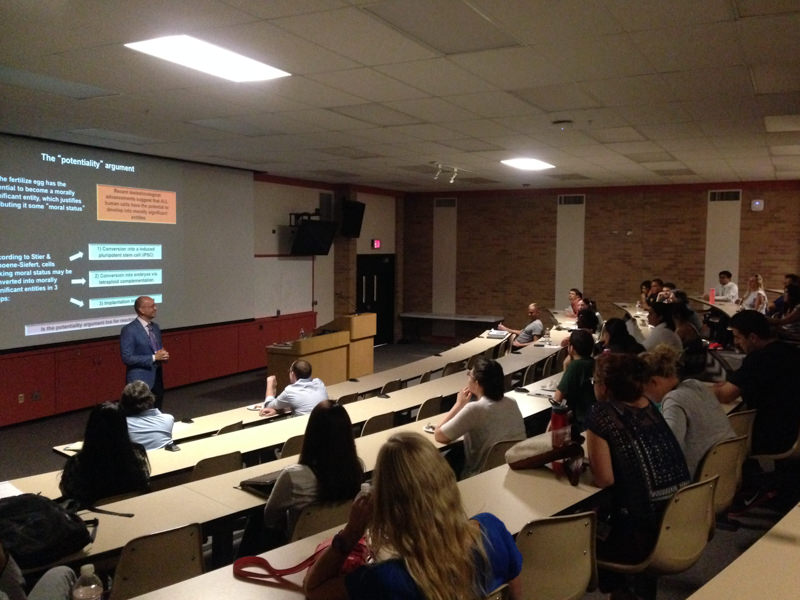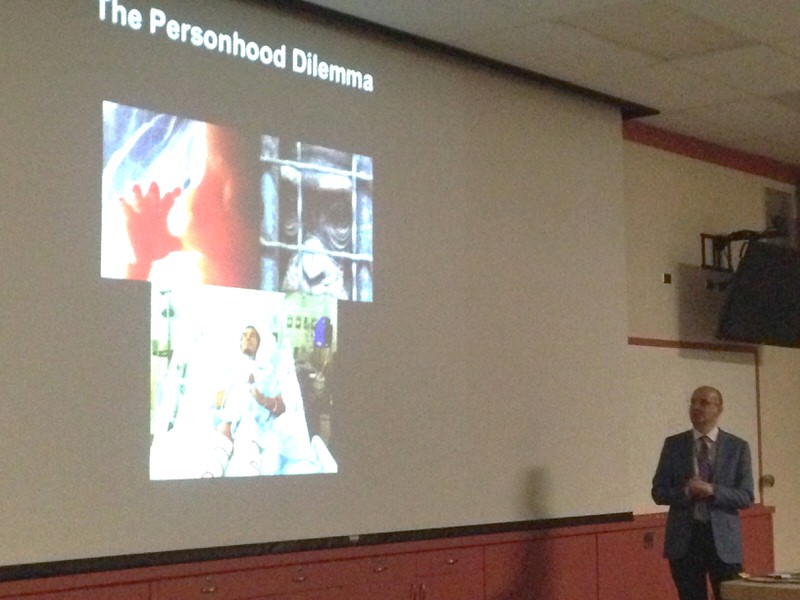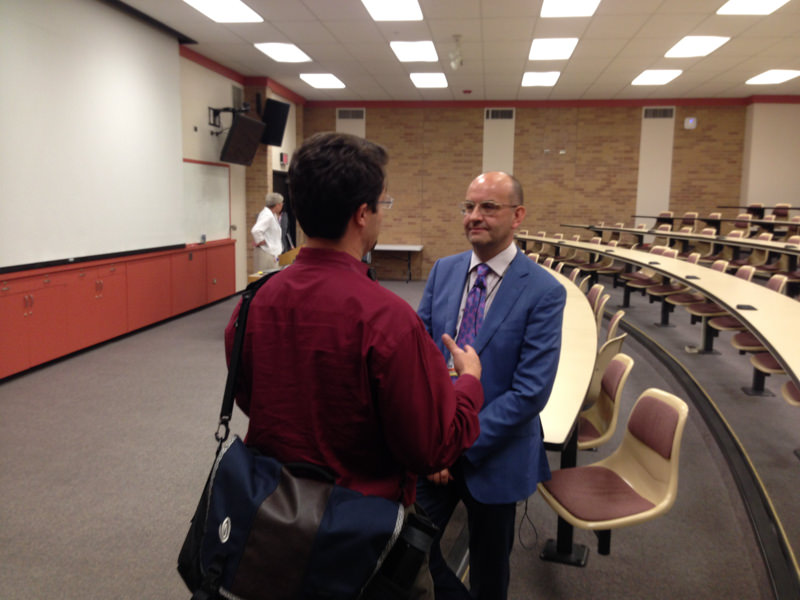Spotlight on Research Integrity: Science & Society, Bioethical Dilemmas

Dr. Andrea Giuffrida
spoke to UT Health Science Center graduate students and postdoctoral trainees about bioethical dilemmas as part of a new series within Spotlight on Research Integrity
that is focused on “Science and Society.”
“The goal of this
segment of Spotlight is to help
trainees appreciate that societal views on many controversial issues often involve science or technology. As scientists, they should appreciate societal perspectives and learn to communicate with the public. We hope to increase trainee awareness and preparation” said Dr. Linda McManus, director of the Office of
Postdoctoral Affairs.
Dr. Giuffrida explained that as the vice president of research, one of his tasks is to
encourage scientists to think about the ethical implications of their research in society.
“Bioethics is the application of ethics to the field of medicine and health care,” Dr. Giuffrida
said. “For instance, harvesting stem cells from an embryo raises multiple questions such as, are we killing a new life?”
He continued with, “When should an embryo be considered a human being? And why do we care?” Answers to these and related questions have profound philosophical and legal
implications that often affect how stem cell research and clinical practices,
like in vitro fertilization, are regulated.”

As presented by Dr. Giuffrida, at the core of this problem is the “person argument”: when do we start calling an embryo a “person”?
This problem has puzzled philosophers and neuroscientists for a long time. Unfortunately, finding a “marker” of personhood is particularly difficult as the definition of personhood remains
elusive.
For instance, should we consider comatose patients as “persons”?
Dr. Andrew Meyer, a pediatrician, offered his perspective as a physician who has encountered these issues in the clinic.
“Brain death is much more difficult when the potential for life is unknown,” Dr. Meyer said.
Travis Block, a graduate student in the Biomedical Engineering program, said that the
presentation “challenged everyone to their thoughts on issues where science is not definitive.”

Jodie Gray, a graduate student in Medical Physics track of the Radiological Sciences program, said that the lecture left her “walking away with more questions that we all should continue to think about as
scientists and citizens.”
Dr. Giuffrida explained that often there is no right or wrong answer when it comes to ethics. He hopes to guide students through these bioethical dilemmas and raise
awareness on the societal implication of neuroscience research in his new class
on Neuroethics in March 2016.
“There is no guidebook on what to do…sometimes you have to make gut decisions,” Dr.
Giuffrida said.
The Spotlight on Research Integrity series is a monthly workshop that features notable speakers from inside and outside of he university and is designed to promote meaningful and sometimes controversial discussion of difficult issues in contemporary biomedical
research.
